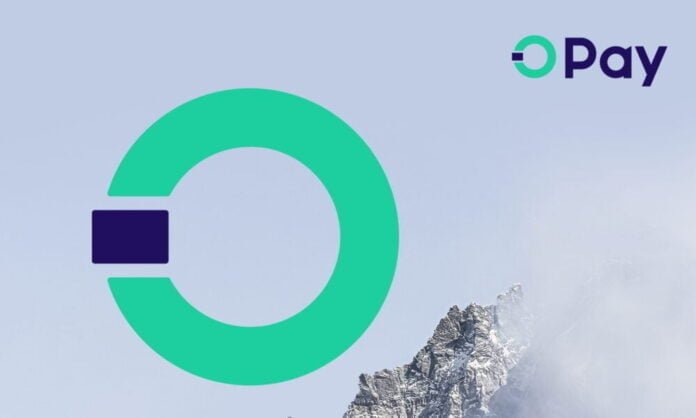With the rapid advancement of technology, the way we handle our finances has undergone a significant transformation. One of the notable players in this revolution is Opay, a mobile money platform that has been making waves in Nigeria. In this article, we will explore the rise of Opay in Nigeria, its benefits, and the potential threats it faces.
The Emergence of Opay
Opay, a subsidiary of Opera Software, was launched in 2018 with the aim of providing a convenient and secure way for Nigerians to carry out financial transactions. It quickly gained popularity due to its user-friendly interface and the wide range of services it offers.
One of the key advantages of Opay is its accessibility. With a smartphone and internet connection, anyone can easily download the Opay app and start using its services. This has made it particularly appealing to the unbanked population in Nigeria, who previously had limited access to financial services.
Which bank controls OPay?
Opera Limited, a Norwegian business well-known for its online browsers and digital services, is in charge of Opay. On the other hand, Opay functions as a mobile payment platform that offers financial services via its app, rather than being directly owned by a traditional bank.
What is the highest amount OPay can receive?
You can receive and send up to 5 million Naira daily as an OPay merchant.
Is PalmPay and OPay the same company?
These two financial platforms are different, even if they provide similar services. If observation, study, and remarks from Nigerians have taught us anything, it’s that these platforms are providing smooth, effective services that are bringing happiness to the people of Nigeria—a rare occurrence in a country that is home to over 50 fintech platforms.
How much does OPay charge per transaction?
Every withdrawal you make using Opay POS that is less than N20,000 naira is subject to a 0.5% fee. Opay levies a fixed fee of N100 naira for withdrawals above N20,000. Agents at Opay POS terminals, however, are allowed to determine their own withdrawal transaction costs.
The Benefits of Opay
Opay offers a plethora of benefits to its users, making it a preferred choice for many Nigerians. Let’s take a closer look at some of these advantages:
1. Convenience
Opay allows users to carry out various financial transactions with just a few taps on their smartphones. Whether it’s sending money to family and friends, paying bills, or purchasing goods and services, Opay provides a seamless experience. This convenience has revolutionized the way Nigerians handle their day-to-day financial activities.
2. Financial Inclusion
One of the biggest challenges in Nigeria has been the lack of access to financial services for a significant portion of the population. Opay has played a crucial role in bridging this gap by providing a platform that allows the unbanked population to store, send, and receive money digitally. This has opened up new opportunities for individuals and businesses alike.
3. Competitive Rates
Opay offers competitive rates for its services, making it an attractive option for users. Whether it’s transferring money, paying bills, or making online purchases, Opay ensures that users get the best value for their money.

4. Partnerships and Integration
Opay has formed strategic partnerships with various businesses and service providers, allowing users to access a wide range of products and services within the app. From ride-hailing services to food delivery, Opay has integrated multiple services, making it a one-stop solution for many Nigerians.
Mastercard and fintech giant OPay have announced a strategic partnership to expand digital commerce in the Middle East and Africa. The collaboration allows OPay consumers and merchants to engage with brands and businesses globally through a Mastercard virtual payment solution linked to the OPay eWallet.
This partnership aims to create new pathways to financial inclusion and support the next generation of super-apps, enabling seamless user experiences and enabling global shopping for leisure, travel, accommodation, entertainment, and streaming services.
The Threats to Opay
While Opay has experienced significant success, it also faces certain challenges and threats. It is important to be aware of these potential risks:
1. Regulatory Environment
The regulatory environment in Nigeria can be complex and ever-changing. As Opay continues to grow and expand its services, it needs to navigate these regulations effectively to ensure compliance and maintain its operations.
2. Security Concerns
As with any digital platform, security is a major concern for users. Opay must continuously invest in robust security measures to protect user data and transactions from potential cyber threats. Any breach in security could erode trust and undermine the success of the platform.
3. Competition
The digital financial services space in Nigeria is highly competitive, with several players vying for market share. Opay faces competition from both established financial institutions and emerging fintech startups. To stay ahead, Opay must continue to innovate and provide superior services to its users.
4. Infrastructure Challenges
While the internet penetration rate in Nigeria has improved in recent years, there are still infrastructure challenges that can impact the reach and accessibility of Opay’s services. Issues such as unreliable internet connectivity and limited smartphone penetration in certain areas can hinder the growth of the platform.
Why OPay will remove accounts without BVN or NIN
OPay, a leading mobile-based payments platform, is implementing a strict KYC process to comply with the Central Bank of Nigeria’s directives on Know-Your-Customer requirements.
Starting March 1, 2024, accounts lacking a Bank Verification Number (BVN) and/or National Identification Number (NIN) will be removed, aiming to strengthen the platform’s security and protect customer deposits against fraudulent activities. The move is part of the company’s commitment to complying with KYC regulations.
Conclusion
The rise of Opay in Nigeria has brought about numerous benefits, including convenience, financial inclusion, competitive rates, and integrated services. However, it is important to recognize the potential threats that Opay faces, such as regulatory complexities, security concerns, competition, and infrastructure challenges. By addressing these challenges effectively, Opay can continue to thrive and contribute to the financial empowerment of Nigerians.










